The best ponzu sauce substitutes to use in your homemade Japanese recipes. From soy sauce and rice vinegar to yuzu koshō, these are the best alternatives to use to replicate ponzu sauce’s iconic tangy citrus flavor.
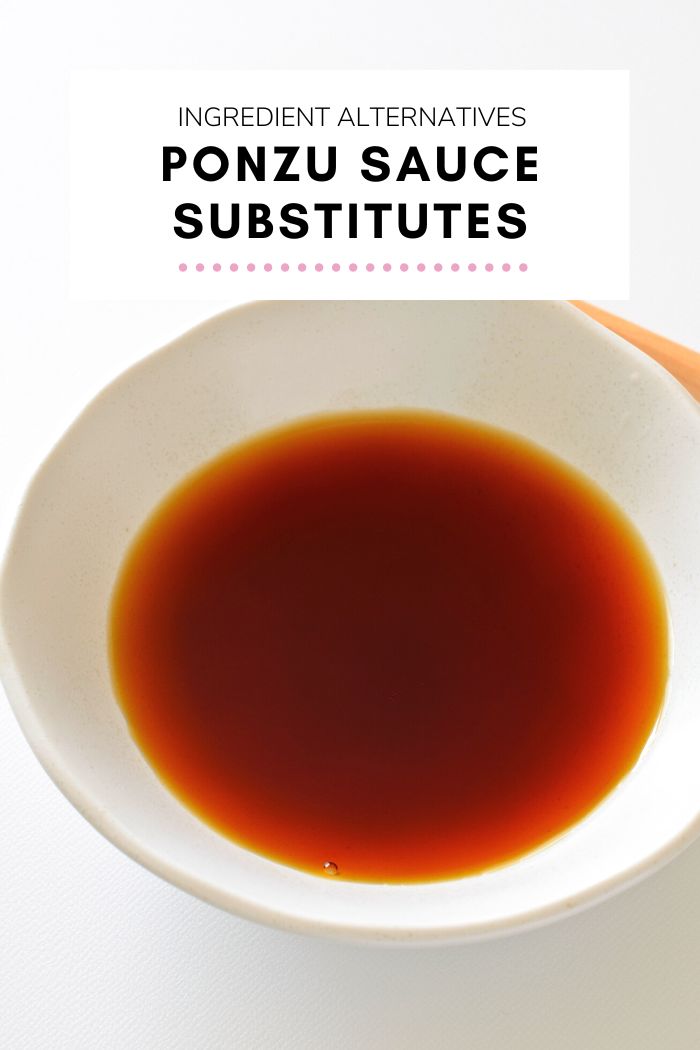
Ponzu sauce is a citrus-based sauce that you can find in many Asian cuisines, especially Japanese. The flavor profile is tart and citrussy, and you most commonly mix it with soy sauce to help balance the flavor.
Not having ponzu sauce can make your dishes lackluster in flavor. Marinades will need something else to add the citrus flavor if ponzu isn’t available. You might also find that your dishes are too sweet without ponzu adding a counterbalancing tartness.
Here, we’ll look into ten commonly used substitutes for ponzu sauce. The substitutes vary in uses and flavors and can save your recipe when you’re out of ponzu sauce.
The best substitute for ponzu sauce is soy sauce. The flavor profiles are similar and you probably use the two sauces frequently in the same dishes. If you need a citrusy substitute, yuzu kosho excels in nearly any situation.
Soy Sauce
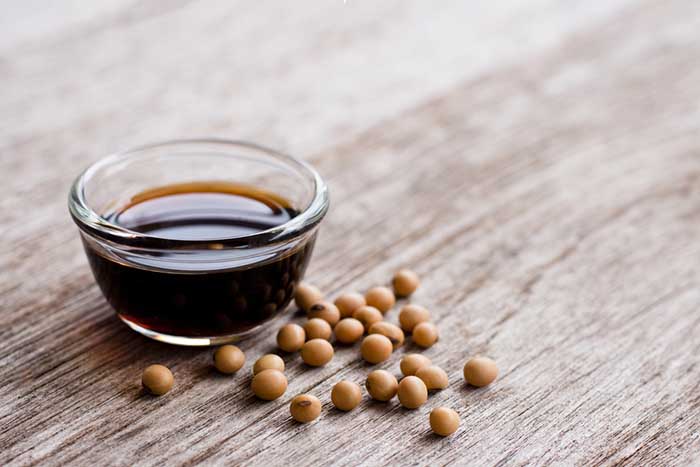
Most of the world uses soy sauce in some variations but it is especially prominent in Asian cuisine. You may have heard of soy sauce as shoyu and soya sauce. You make soy sauce from soybeans, wheat, salt, and something to help ferment them. Traditionally, manufacturers soak the beans in water for several hours, steam them, and mix them with ground wheat flour.
Soy sauce can replace ponzu sauce in nearly any application. You probably often use them together. Most people do, so much so that the most common way to enjoy ponzu sauce is by mixing it with soy sauce and referring to the combination simply as “ponzu.”
You can replace ponzu sauce with soy sauce in most dishes or marinades. Soy sauce can also substitute for ponzu sauce as a dipping sauce, such as for sushi dishes. You can replace ponzu in an equal ratio, but be wary of making your dish too salty.
The flavor profile for soy sauce is salty with a powerful umami flavor. It’s dark brown bordering on black with a powerful, though noninvasive, scent. If replacing ponzu sauce as an ingredient, you should also add something to mimic ponzu’s citrus hints, as soy sauce does not have a citrus flavor.
Rice Vinegar
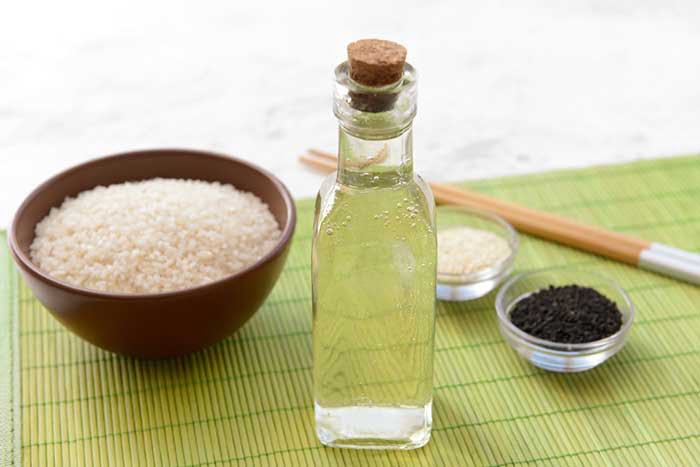
Fermented rice grains make up rice vinegar. You can use it in fried dishes, soups, rice dishes, and as an ingredient in steamed rice. It’s one of the most delicate kinds of vinegar you can find.
Rice vinegar can easily substitute for ponzu sauce in many applications. As an ingredient, rice vinegar can add a similar sweetness. It also can brighten a dish with a vinegar undertone similar to the citrus flavor of ponzu. However, rice vinegar doesn’t work as well as a dipping sauce.
Typically, you can use an equal parts substitution for rice vinegar. If you compare it to other vinegar types, rice vinegar is the subtlest and most gentle, not providing the same astringent burn you might expect. It’s slightly yellow but otherwise entirely clear so it won’t change the color palette of your dish.
Sake
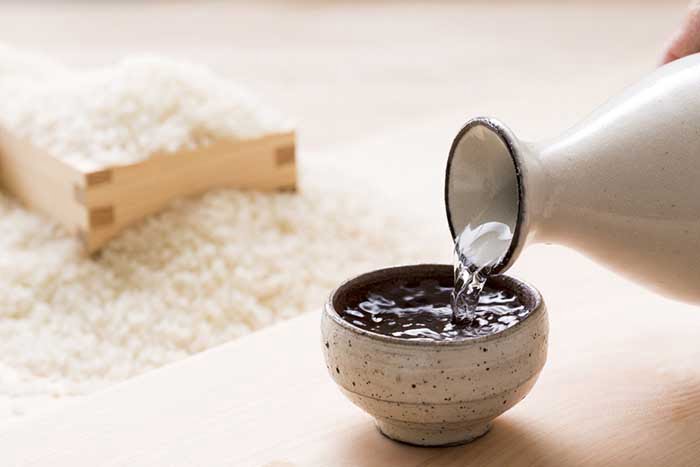
Rice grains make up sake, an alcoholic spirit popular in Asia. There are as many types of sake as there are types of wine, so picking a specific flavor palette is impossible, as it depends on what type of sake you’ve gotten on your hands.
Cooking with sake is similar to cooking with white wine. Filtered and unfiltered varietals exist and deliver different flavors and sensations. Filtered sakes are often sweeter and more delicate. Unfiltered sakes are usually cheaper and stronger in flavor.
You may want to use more sake than you would have used ponzu, as cooking will diminish the flavor somewhat. Don’t worry about the alcohol, as the cooking process will remove the majority of it. Consider sake as a substitute in mixed drinks, white meats, and sweet dishes.
Lemon Juice
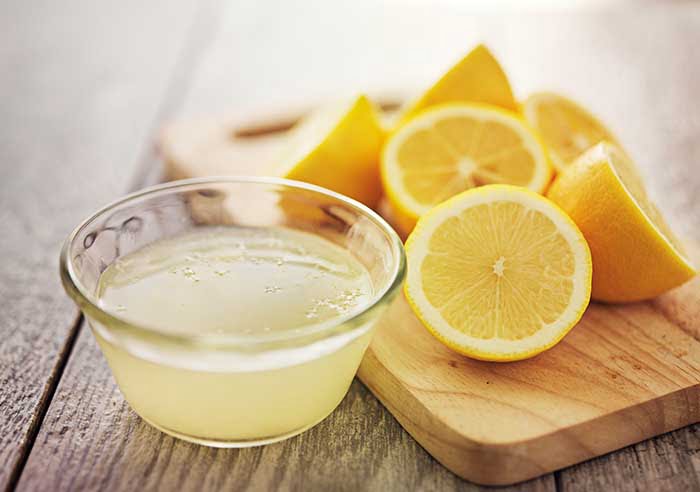
When you squeeze a lemon, you get lemon juice. It’s best to get this ingredient by purchasing lemons and squeezing them yourself. Concentrated lemon products can have a more powerful, synthetic flavor that many find undesirable.
Lemon juice can replace ponzu sauce in nearly every situation. For most dishes, you’ll want to use less lemon juice than you would have ponzu. Consider a 5:1 ratio of lemon juice to ponzu or your dish may become too sour or citrussy.
Lemon juice becomes a much brighter note in many dishes because of its fresh and sour taste. You can use lemon juice to marinade meats, in beverages, and in nearly any other application you may use ponzu sauce. Lemon juice especially excels with seafood dishes, particularly lighter white fish.
Worcestershire Sauce

To make Worcestershire sauce (pronounced wu-stuh-sure), you use vinegar, anchovies, molasses, tamarind, and a few other ingredients. Favored in many parts of Europe and North America, Worcestershire sauce makes a surprisingly great substitute for ponzu sauce due to its vinegar base.
You can use Worcestershire sauce as a substitute in most recipes, but should not use it for drinks or sweets unless you’re trying to enjoy a savory Bloody Mary. A 1:1 proportion is fine in all situations assuming you taste as you go, as the flavor profiles are not exactly equal.
Worcestershire has a bright umami flavor because of using vinegar and anchovies as ingredients. The flavor profile is similar enough to ponzu sauce that you may not even notice the substitution in most cases.
Orange Juice
Orange juice is the juice from any of the many species of oranges. Different types of oranges have different flavors, so make sure you’re using one you like.
As with lemons, it’s best to squeeze your own rather than buy a concentrated product. If you buy orange juice, use a reputable, preferably organic brand.
Orange juice is not the best replacement for ponzu sauce, as it only gives your dish citrus notes.
Furthermore, orange juice has a different type of citrus flavor than ponzu. That said, it makes an excellent replacement in many marinades and drinks. Your ratio should be to taste, as orange juice has a noticeable flavor.
Orange juice is sweet with balanced acidity to it. For many applications, you may feel it’s too sweet. Add a touch of vinegar or lemon juice to lower the sweetness and balance the flavor profile.
Other Citrus Juice
Citrus fruits include lemons, limes, oranges, grapefruits, tangelos, and many more. You may want to use a cocktail of these juices to substitute for ponzu sauce if you find that one citrus juice isn’t adequate. Use the ones you like best or pick sour citrus fruits to balance out sweeter ones.
Citrus juice is a great replacement in marinades for meat. You can also improve many drinks by including citrus juice. Given the citrus notes of ponzu sauce, you can generally use citrus juice in any recipe you’d use ponzu sauce.
Depending on your mix, your citrus juice will have a unique flavor profile. Consider adding spices, vinegar, or even other sauces to make the flavor more sophisticated. Citrus juice becomes a fantastic replacement as the base of a marinade.
Prik Nam Pla
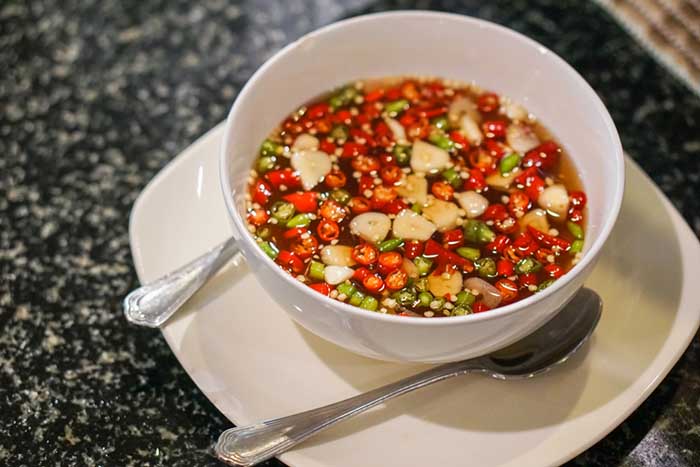
Prik nam pla is a famous condiment from Thailand that has become popular worldwide. The fish sauce derives from fermented fish, with anchovies as the central ingredient. Other ingredients include garlic, lime juice, sugar, and Thai chilis, which help differentiate prik nam pla from other fish sauces.
Prik nam pla is a fantastic substitution for ponzu sauce, though the flavor profiles are incredibly different. The citrus of the lime juice helps fill in the same role that ponzu’s citrus profile does.
Your substitution ratio should be to your taste given the different flavor profiles of each sauce. Prik nam pla is particularly suitable as an addition to seafood dishes or as a dipping sauce.
Prik nam pla’s flavor is brighter and more summery than ponzu sauce. Additions like green onion and fresh cilantro help undercut the spiciness that Thai chilis bring.
Yuzu Kosho
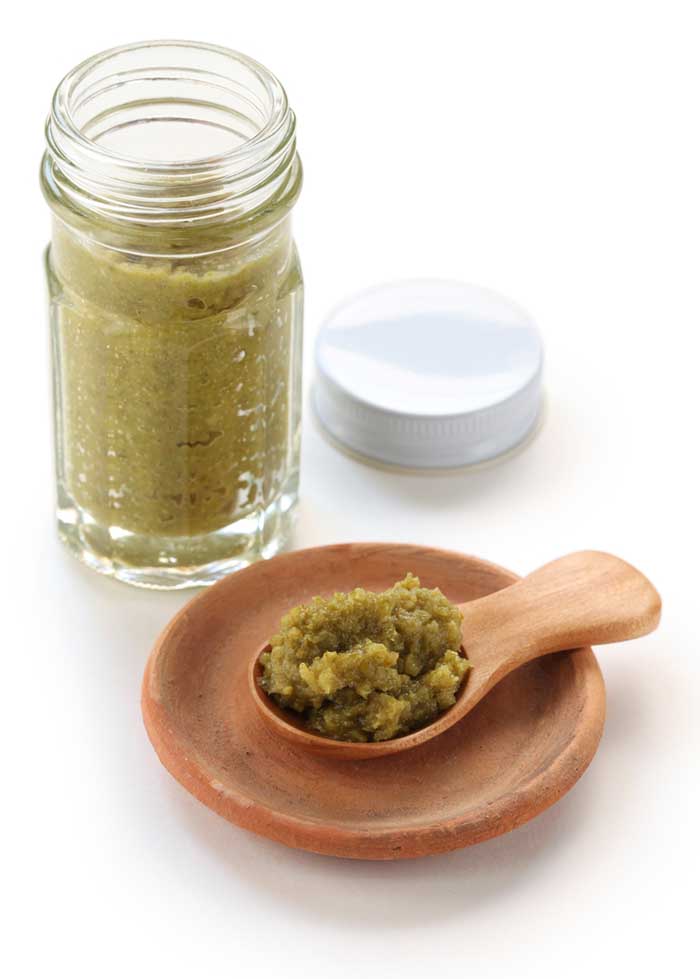
The yuzu fruit’s skin, a popular Japanese citrus fruit, goes into yuzu kosho. You can also mix it with green chilis, which doesn’t add much heat to the citrus sauce, keeping it bright and refreshing.
Yuzu kosho works great as a 1:1 replacement for ponzu sauce. The yuzu provides a citrus flavor, while the sauce gives a flavor profile similar to ponzu sauce. In many parts of Japan, people prefer yuzu kosho to ponzu sauce.
When you use it as a substitute, the flavor profiles are similar enough that you don’t need to add anything else. However, the citrus flavor of yuzu kosho is more powerful, so you may want to add less yuzu kosho to your dish if you don’t like strong citrus flavors.
Fish Sauce
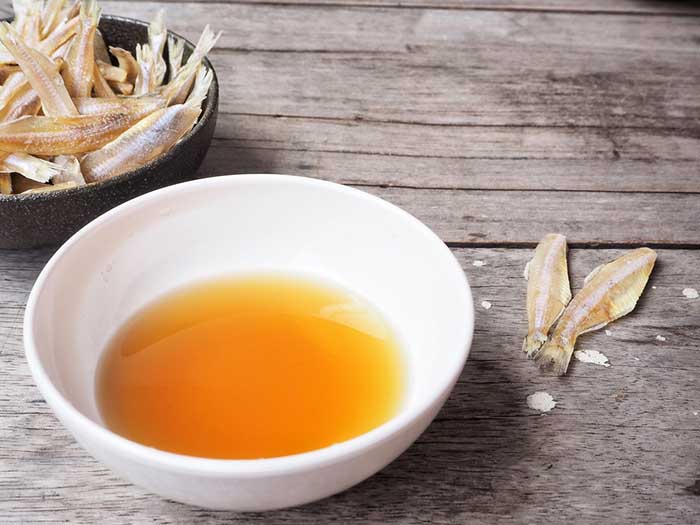
Fish sauce is a broad category for sauces that use fish as a base. Prik nam pla and Worcestershire sauce are both technically fish sauces! Anchovies are a common base, but many use other ingredients.
Fish sauce has a pronounced umami flavor and won’t always have a citrus flavor, so you may want to use less fish sauce than ponzu sauce in your dish.
Different fish sauces have different flavors, but they’re typically salty and strong in flavor. Consider adding optional ingredients to make the flavor profile more aligned with what you prefer. More spices, citrus, and chilis are all great additions!



